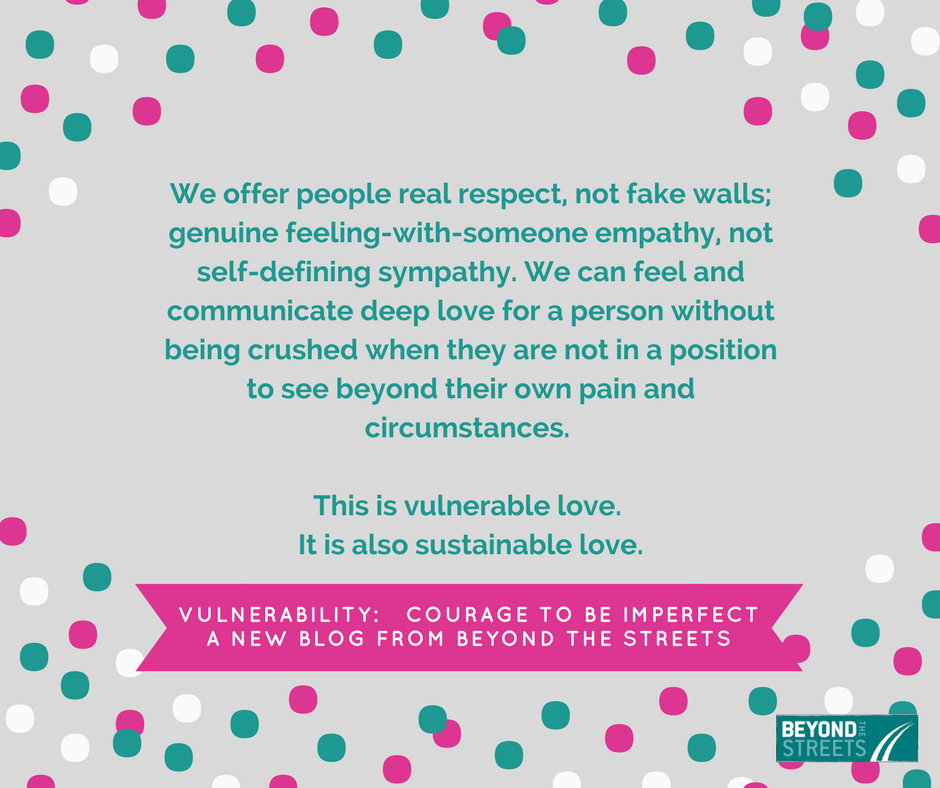Jun 27, 2017
At our Beyond the Streets Gathering in March, Elaine Storkey* navigated us through the concept of vulnerability drawing from biblical principles to show how love is only possible, only real when we, like God are willing to embrace our own vulnerability. Those who are vulnerable are those who are able to be wounded.
 Having conducted hundreds of interviews and spent 6 years collecting data on people and vulnerability, Brené Brown*1 found that her interviewees divided themselves into 2 categories: those who have a sense of worthiness, love and belonging and those who struggle with it. What does this mean? She found it to mean that the first group were those who were able to embrace vulnerability, to believe that ‘what made them vulnerable made them beautiful.’ She calls them the ‘whole-hearted people.’ What does this whole-heartedness enable us to do then? She says it gives: first a sense of courage to be imperfect; secondly, true compassion which means we can be kind to ourselves first and then to others; thirdly, connection as a result of authenticity.
Having conducted hundreds of interviews and spent 6 years collecting data on people and vulnerability, Brené Brown*1 found that her interviewees divided themselves into 2 categories: those who have a sense of worthiness, love and belonging and those who struggle with it. What does this mean? She found it to mean that the first group were those who were able to embrace vulnerability, to believe that ‘what made them vulnerable made them beautiful.’ She calls them the ‘whole-hearted people.’ What does this whole-heartedness enable us to do then? She says it gives: first a sense of courage to be imperfect; secondly, true compassion which means we can be kind to ourselves first and then to others; thirdly, connection as a result of authenticity.
Share this page